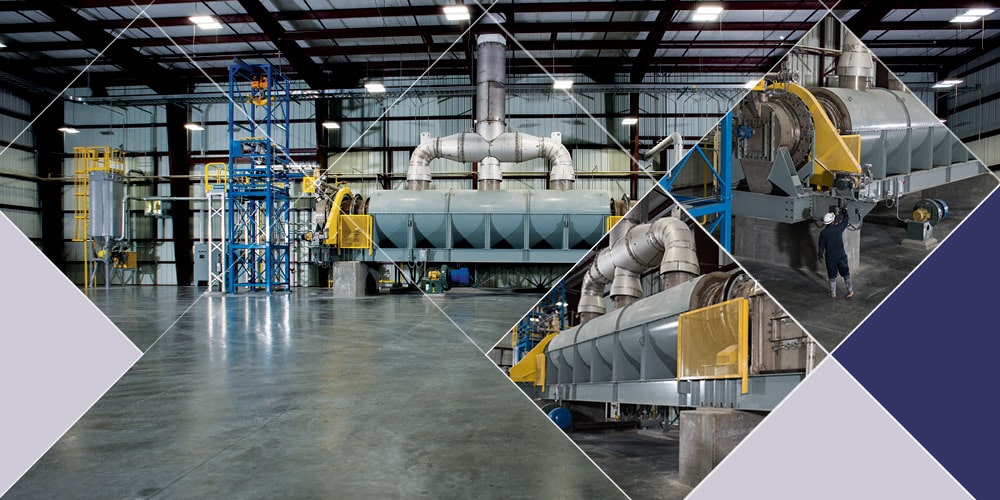
Toll Processing Services
Thermal Processing & Toll Calcining Services
Our toll processing services deliver custom material solutions for our customers. These processes are available for a variety of products to meet your specific application and needs. Some common thermal processing services involve removing moisture, decomposition, or otherwise altering the state of a material.
Advantages
Our toll processing solutions effectively achieve material processing goals with clear advantages for customers that are looking to outsource their thermal processing operations. We have the expertise, physical space, and capacity in the form of a full-service production plant to meet any requirements, specifications, or time delivery needs.
Contract Thermal Processing Services
We have the expertise to meet your materials processing needs with our premium technology that utilizes calcining equipment with the right temperatures and speed controls.
Our indirect gas fired rotary calciner delivers processing solutions for complex applications. Equipped with three separate heat zones with maximum temperatures up to 1832°F (1000°C). This calcining approach ensures superior temperature control and optimal processing conditions for raw materials and other substances.
At Elan Technology, we offer cost-effective services that deliver custom solutions. We’re a one-stop shop for both toll calcining and toll spray driving services. Contact us today to learn more.
Calcining Services Frequently Asked Questions
How does calcining differ from other thermal processes like roasting or sintering?
- Roasting: Typically involves oxidation or reduction of ores at lower temperatures compared to calcining.
- Sintering: A process where particles are heated below their melting point to bond together, often used for ceramics and metals.
- Calcining: Primarily focuses on inducing chemical changes, such as decarbonization or phase transformation, through high-temperature treatment.
What are the key benefits of using calcining?
- Purification: Removes impurities and volatile components from raw materials.
- Transformation: Converts materials into a more chemically stable or useful form.
- Enhanced Properties: Improves material properties such as hardness, reactivity, or stability.
What temperature range is typically used for calcining?
The temperature range for calcining varies depending on the material. The maximum temperature for our calciner is 1000°C. Specific temperatures are tailored to the requirements of the material and desired outcome.
How do I know if calcining is the right process for my material?
To determine if calcining is suitable, consider:
- Material Composition: Does it require thermal treatment to achieve desired properties?
- Desired Outcome: Are you aiming for phase transformation, removal of volatile components, or purification?
- Processing Requirements: Can your material withstand high temperatures and the calcining environment?
What is the typical lead time for contract calcining projects?
Lead times vary based on the complexity and scale of the project. Generally, it ranges from a few weeks to several months. Please provide details about your material and requirements for a more accurate estimate.
Can you handle both small-scale and large-scale calcining projects?
Our production calciner has a diameter of 4’ and a heated section 30’ long. However, we can provide some development support for small samples in our laboratory.
What quality control measures are in place during calcining?
We implement comprehensive quality control measures, including:
- Monitoring: Continuous monitoring of temperature, pressure, and other process parameters.
- Testing: Regular sampling and analysis of material to ensure desired properties. Quality control monitoring can vary based on the the customer’s specifications.
What information should I include in my initial toll calcining quote inquiry?
- Material form (i.e. powder, extrudates, etc.) and median particle size
- Material bulk density
- Mass loss across calcination
- Desire temperature, and residence time
- Off gas release levels of NOx and VOC’s, if any
- Material angle of repose